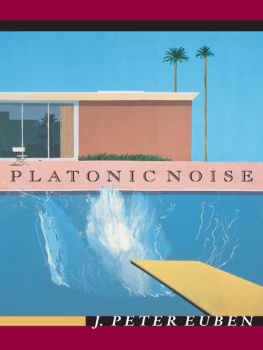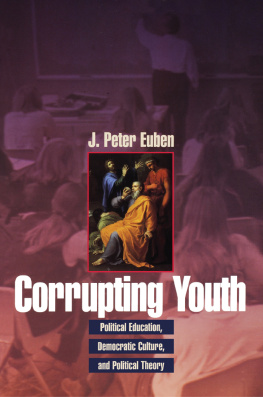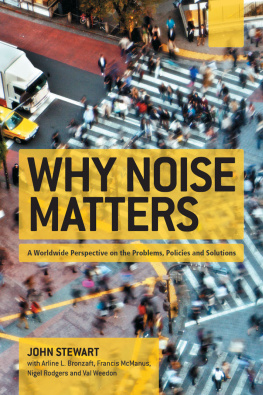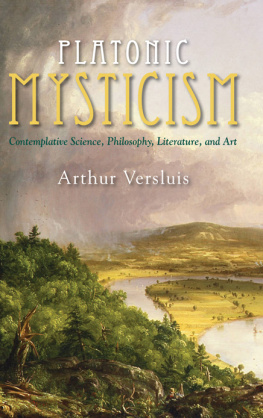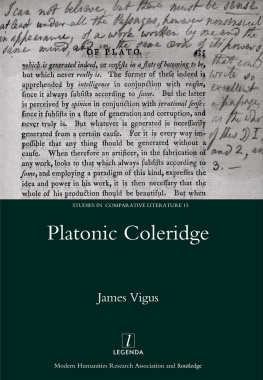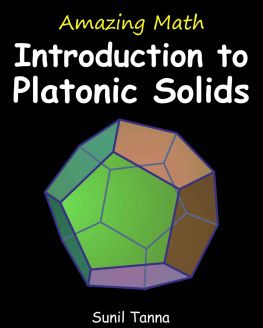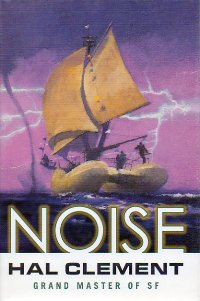Euben - Platonic Noise
Here you can read online Euben - Platonic Noise full text of the book (entire story) in english for free. Download pdf and epub, get meaning, cover and reviews about this ebook. City: Princeton;N.J, year: 2003;2008, publisher: Princeton University Press, genre: Politics. Description of the work, (preface) as well as reviews are available. Best literature library LitArk.com created for fans of good reading and offers a wide selection of genres:
Romance novel
Science fiction
Adventure
Detective
Science
History
Home and family
Prose
Art
Politics
Computer
Non-fiction
Religion
Business
Children
Humor
Choose a favorite category and find really read worthwhile books. Enjoy immersion in the world of imagination, feel the emotions of the characters or learn something new for yourself, make an fascinating discovery.
Platonic Noise: summary, description and annotation
We offer to read an annotation, description, summary or preface (depends on what the author of the book "Platonic Noise" wrote himself). If you haven't found the necessary information about the book — write in the comments, we will try to find it.
Platonic Noise — read online for free the complete book (whole text) full work
Below is the text of the book, divided by pages. System saving the place of the last page read, allows you to conveniently read the book "Platonic Noise" online for free, without having to search again every time where you left off. Put a bookmark, and you can go to the page where you finished reading at any time.
Font size:
Interval:
Bookmark:

Copyright 2003 by Princeton University Press
Published by Princeton University Press, 41 William Street,
Princeton, NewJersey 08540
In the United Kingdom: Princeton University Press, 3 Market Place
Woodstock, Oxfordshire OX20 1SY
All Rights Reserved
Library of Congress Cataloging-in-Publication Data
Euben, J. Peter.
Platonic noise / J. Peter Euben.
p. cm.
Includes bibliographical references and index.
eISBN: 978-1-40082-558-5
1. Greek literatureHistory and criticism. 2. Politics and literatureUnited
StatesHistory20th century. 3. American fiction20th centuryHistory and
criticism. 4. Literature, ComparativeGreek and American. 5. Literature,
ComparativeAmerican and Greek. 6. Political scienceGreeceAthens. 7. American
fictionGreek influences. 8. Arendt, Hannah. Human condition. 9. Politics and
literatureGreece. I. Title.
PA3071 .E93 2003 880.9'001dc21 2002030722
British Library Cataloging-in-Publication Data is available
This book has been composed in Sabon and Carlson Open Face
Printed on acid-free paper.
www.pupress.princeton.edu
Printed in the United States of America
1 3 5 7 9 10 8 6 4 2
To the memory of my sister Laura Emily Pett,
whose death so greatly diminished the generosity,
warmth, and humor in the world.
Child of an old blind man, Antigone,
to what regions, or to what mens city
have we come? Who on this day shall receive Oedipus
the wanderer with scanty gifts?...
But come my child, if you see any seat
either near ground unconsecrated or near the
precincts of the gods, stop me and let me sit there,
so that we may find out where we are; for we have come
as strangers, and must learn from the citizens....
SOPHOCLES, Oedipus at Colonus, 14, 812 (Lloyd-Jones translation)
Griefs, at the moment when they change into ideas, lose their power to injure our heart.
MARCEL PROUST
Contents
Acknowledgments
SINCE I am someone who learns more from conversation than from books, my friends and interlocutors are my coauthors, however much they may wish to deny such complicity. Most of the blame can be given to Don Moon and George Shulman, who have both read most of what I have written, and tried their best to make it clearer and deeper. Wendy Brown, William Connolly, Jason Frank, Patrick Deneen, Michael Janover, Tracy Strong, Ann and Warren Lane, Dana Villa, Melissa Orlie, Gary Shiffman, and Roxanne Euben have read one or more chapters. Their insights, learning, and generous intelligence have alerted me to crucial absences, discursive liberties, and overstatement. Then there are those friends and colleagues with whom I continue to have general conversations about political theory and politics: Sheldon Wolin, Kirstie McClure, Arlene Saxonhouse, Terence Ball, Tracy Strong, George Kateb, Stephen Salkever, John Wallach, Josiah Ober, John Schaar, and Hanna Pitkin.
Since all but one of these chapters began as lectures or talks, I owe much to the people who invited me and to the people who responded with suggestions and questions. These include Andy Sabl, Robert Meister, Ronnie Lipschutz, Susan Bickford, and my new colleagues at Duke, Rom Coles, Kim Curtis, and Elizabeth Kiss. Over the years Nan Keohane has taken time from her hectic schedule to talk with me about various issues discussed in this book.
A conversation with George Kateb about my need to confront the role of loss and death in Platonic political theory brought me up short and to the themes of this book, especially those of its final chapter. That intellectual challenge became something more with the unexpected death of my sister Laura, to whom this book is dedicated, though I suspect only chapter 4 would have given her pleasure. Penultimately, I want to thank the anonymous reviewers of Princeton University Press and Ian Malcolm for his encouragement and suggestions.
Finally, it would be ungrateful not to give thanks to Zoe Sodja, Cheryl Van De Veer, and especially Betsy Wootten, who typed the manuscript for this technologically challenged academic. Their patience with my lousy typing, barely legible handwriting, and various pastings and wandering arrows is a testament to their intelligence, fortitude, and friendship.
Though all the chapters, save the introductory chapter 1, have been published elsewhere, none has simply been reprinted. In the case of chapters 5 and 6, the changes have been limited to a few revisions, additions, and cross-references. In the case of chapter 2, the last third of the essay has been rewritten; the same is true of chapter 3, which was originally limited to Arendts Hellenism. Chapter 4 has been less extensively revised, but here, too, I have added several pages, rewritten others, and, as elsewhere, referred to previous and subsequent chapters to make this more of a book than a collection of essays. Chapter 7 appeared in a substantially shorter version in Political Theory.
I would like to thank the University of Minnesota Press for permission to reprint chapter 4, which originally appeared in Public Space and Democracy, edited by Marcel Henaff and Tracy B. Strong (2001), and chapter 5, which first appeared in Vocations of Political Theory, edited by Jason A. Frank and John Tambornino (2000); Cambridge University Press for permission to reprint chapter 3, originally entitled Arendts Hellenism, which appeared in The Cambridge Companion to Hannah Arendt, edited by Dana Villa (2000); and Polis for permission to reprint On the Uses and Disadvantages of Hellenic Studies for Political and Theoretical Life as part of chapter 2. The essay appeared in vol. 15, nos. 1 and 2 (1998): 4576.
I
Introduction
PHILIP ROTH'S The Human Stain is a novel about a light-skinned black man named Coleman Silk who opts to pass as a white Jew. Coleman eventually becomes a professor of classics and reforming dean at a small New England liberal arts college. But he is undone by a charge of racism when he wonders out loud whether the two missing students in his class are spooks and they turn out to be African American women. Since his chosen path to success has meant renouncing his family, symbolically if not literally killing his mother, and rejecting his heritage, one might think he got what he deserved, even if the charge of racism was absurd. In that case, the novel would be a morality play in which a callous, self-serving, and selfish man received an appropriate punishment. One would be wrong.
To dismiss Coleman as merely self-interested is a comforting simplification for the same reason that regarding Dostoevskys Grand Inquisitor as a self-aggrandizing, hypocritical power seeker rather than someone driven by love of humanity and created by our desperate need for authority and meaning is one. In both cases it lets us off the moral hook. It is true that Coleman reaps the benefits of the privileges whiteness brings. It is also true that he is traumatized by the racism he experiences before deciding to reject his past for a self-defined future. And it is true that passing seems to provide an adrenaline rush he cannot do without. Indeed, because Coleman tells no one (including his Jewish wife) his secret, his life is a constant performance on a stage as large as his existence. He seems to thrive on taking risks and challenging chance (such as having children), then reveling in his seeming triumph (all of them miraculously turn out white). But these risks are taken in the name of the American dream of freedom. It is this more than the privilege of whiteness, the experience of racism, or the pleasure of performance that drives him. Why should he be unable to live the American dream simply because he happens to be black? Why should he be precluded from accepting the democratic invitation to throw our origins overboard if to do so contributes to the pursuit of happiness (334)? He is the child of chance, not a victim of fate. He leaves the baggage of the past behind him where it belongs.
Font size:
Interval:
Bookmark:
Similar books «Platonic Noise»
Look at similar books to Platonic Noise. We have selected literature similar in name and meaning in the hope of providing readers with more options to find new, interesting, not yet read works.
Discussion, reviews of the book Platonic Noise and just readers' own opinions. Leave your comments, write what you think about the work, its meaning or the main characters. Specify what exactly you liked and what you didn't like, and why you think so.

